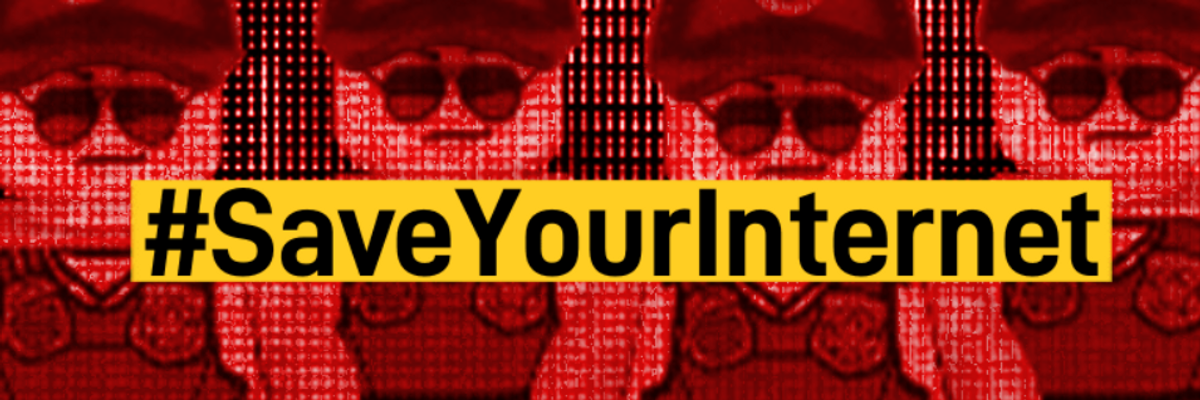Free speech and digital rights advocates across Europe blacked out websites on Thursday to protest the controversial Copyright Directive the European Parliament is scheduled to vote on next Tuesday.
Activists are also planning #SaveYourInternet protests, which are set to take place across Europe on Saturday.
For the past few years, members of the European Union's (EU) legislative assembly have negotiated updates to continent-wide copyright rules that are nearly two decades old. Digital experts and activists warn that two particular provisions in the final text of the directive (pdf) collectively would be a "catastrophe for free expression."
"Although there are important wins for the open community in the current text, the inclusion of Articles 11 and 13 will harm the way people find and share information online," the Wikimedia Foundation, a nonprofit that promotes free knowledge, said in a policy statement.
(Note: As part of the legislative process, Article 13 has been renumbered as Article 17.)
Detailing the controversial sections, the Wikimedia Foundation explained:
Article 11 would allow news publishers to sell licenses for even the smallest snippets taken from online news sites. If no license fee is paid, the snippets would need to be removed from the search results and news aggregation lists. By imposing these burdens on websites that collect, organize, and make sense of the news, Article 11 will make it even harder to sort through the noise to find high-quality news sources for projects like Wikipedia.
Article 13 [a.k.a. Article 17] creates new liability for websites that host user-generated content, if they are unable to ensure that infringing works are not re-uploaded to their sites. This would mean that all uploads to platforms would have to be scanned and treated as presumptively suspicious. Although non-commercial encyclopedias like Wikipedia are exempted, the greater internet ecosystem our communities rely upon will suffer if platforms are forced to privately enforce copyright.
Activists and website administrators across Europe joined #Blackout21 on Thursday to protest the pair of provisions, which critics often call the "link tax" and "censorship machine," respectively. Organizers circulated various images for social media profiles and websites:
Blackout participants included the German, Czech, Slovak, and Danish Wikipedias as well as Pornhub:
Find a map of the weekend demonstrations with links to the Facebook events here.
Open internet advocates continue to encourage Europeans to keep pressure on their Members of Parliament (MEPs) ahead of the final vote. A website managed by European Digital Rights (EDRi) and backed by several other groups has created a tool to help people identify and contact MEPs from each country.
Next week, MEPs "will get to choose between supporting a reform that forces upload filters onto the internet OR to reject the reform and demand a balanced revision of the text for the benefit of citizens and creators," the site explains. If the directive passes, "the next step is then the final approval of the Council at the Ministerial level. There is no date yet for this vote but it can be expected to take place in April."
In other words, as the Wikimedia Foundation concluded it its statement, "this is the last chance for Europeans who care about access to knowledge and the sharing of diverse information on the internet to make their voice heard."

